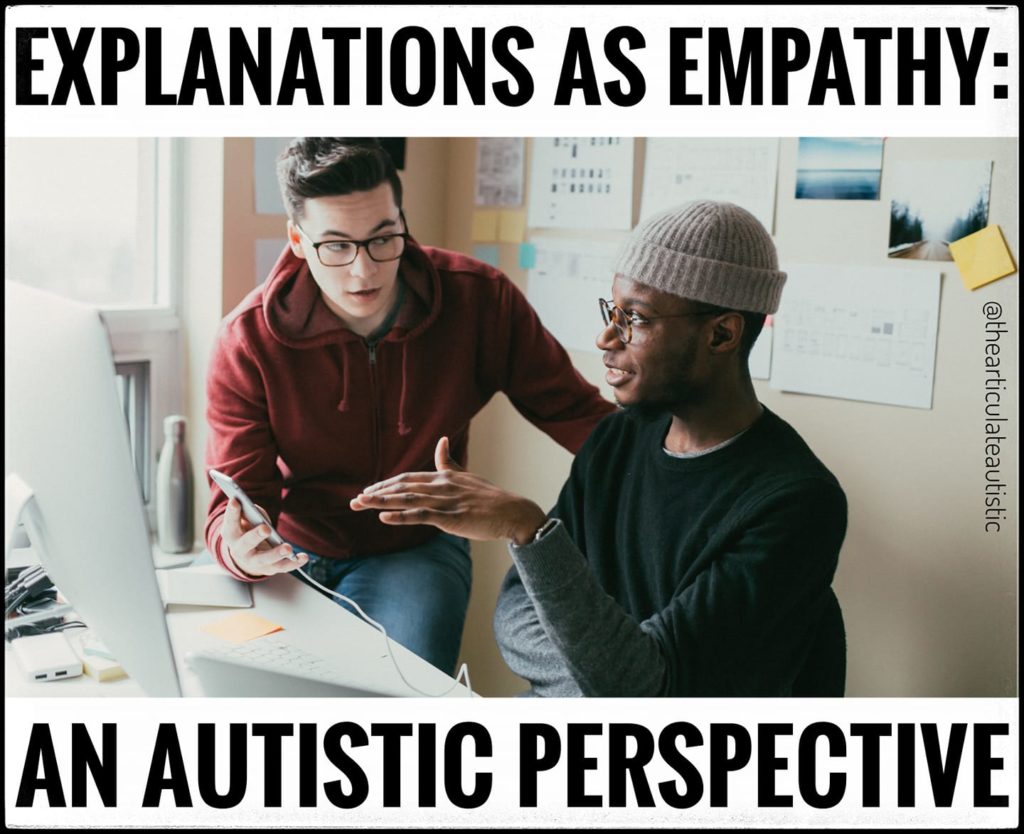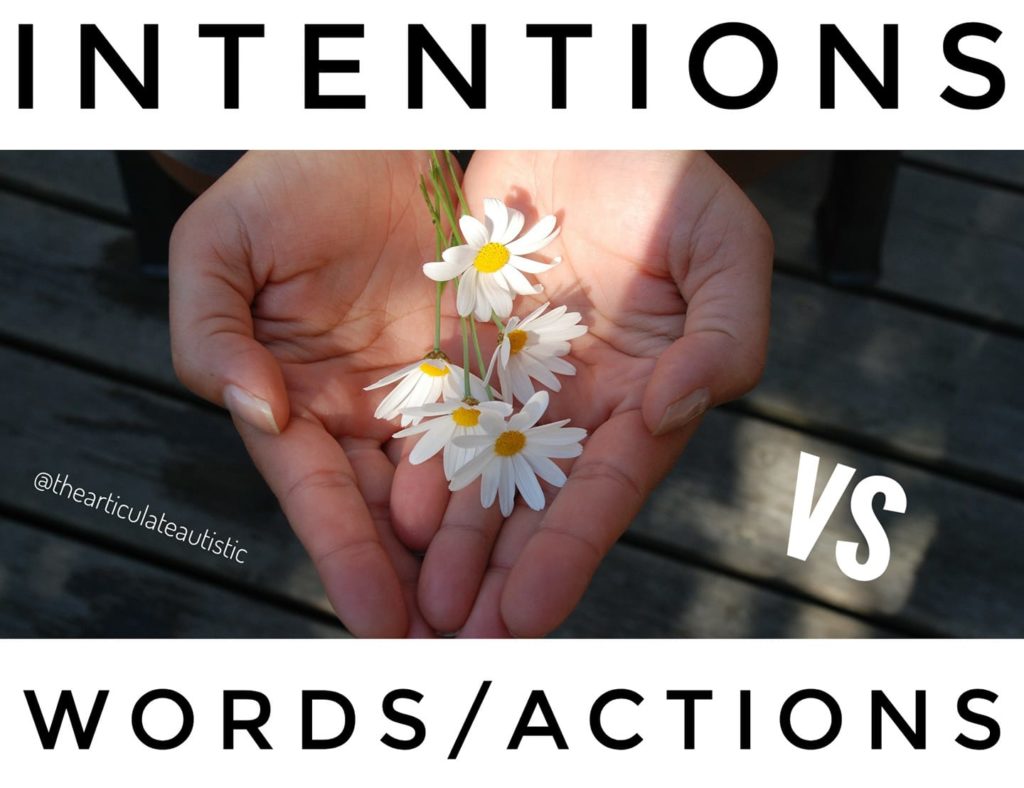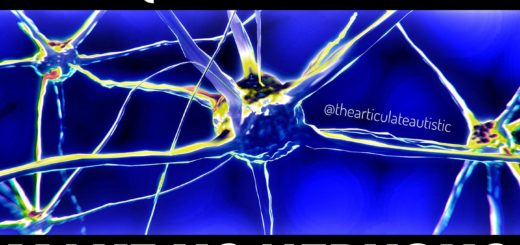Explanations As Empathy: An Autistic Perspective

If the autistic person in your life has a habit of explaining themselves at length, especially in an argument or heated discussion, it can make it seem like we are trying to weasel out of taking responsibility.
Like the crying or becoming upset when you become upset due to something we’ve unknowingly done to upset you, this is not us trying to turn the attention to ourselves or “get out of” responsibility for hurting you.
Explaining could be a way to show empathy, and I’ll explain how this works with me:
Misunderstandings are the bane of my existence, and they have happened since I was old enough to talk.
Because of this, I have been backtracking to explain myself my entire life. In fact, I don’t have any concept of how NOT to explain myself. I can’t even imagine it.
There are two primary reasons I do this:
1) I don’t want to get hurt. When someone misunderstands my intentions, I still expect to be physically struck. I’ll never stop feeling that instant fear when someone gets angry.
2) I truly believed for most of my life that explaining was a way to calm the situation. If I showed a person what I really meant, they would stop being angry, hurt, etc., and everything would balance out again. I mean, that’s how it works for me!
Logic is life and my primary way of functioning.
I didn’t know up until very recently that emotions in neurotypical people can stop all logic and reasoning ability because that only happens to me if I’m going to have a meltdown.
I often say I have a very long fuse, but when it finally blows, look out!!
So, maybe this is what the autistic person in your life is experiencing, too.
Want downloadable, PDF-format copies of these blog posts to print and use with your loved ones or small class? Click here to become a Patreon supporter!






